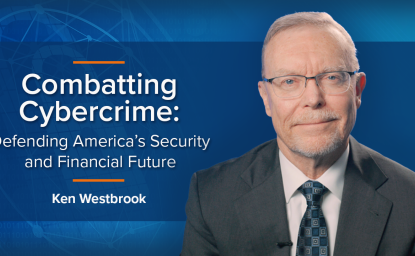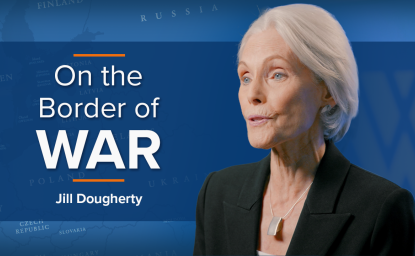Reported by Mary-Lea Cox
At a Director's Forum held at the Woodrow Wilson Center on November 22, Commerce Secretary William Daley said that while most Americans want open borders and understand the connection between free trade and jobs, the connection between free trade and the environment is "hardest to sell" and will be a major bone of contention at the meeting of the World Trade Organization (WTO) in Seattle next week.
Responding to questions on what the U.S. could realistically hope to achieve at next week's WTO gathering, Daley said that if there is little consensus in this country on ensuring that trade does not lower environmental standards, there is "even less outside." He had just returned from an eight month tour of other countries, and while he found "great concern" about environmental standards, there was little agreement on how that concern could be interpreted concretely by WTO ministers.
According to Daley, officials in Washington have been taking an unprecedented degree of initiative in ensuring that future trade agreements take into account environmental concerns. His own Department of Commerce was a natural leader in this regard. The largest agency at Commerce is the National Oceanic and Atmosphere Administration (NOAA), which manages fisheries, endangered species, and coastal eco-systems. "So, I know the pressures that growth can put on the environment, and the need to protect places like our National Marine Sanctuaries. But I also know the needs of the business community."
The recent agreement with forty-two nations to rebuild Atlantic tuna and swordfish populations was a good example of the close cooperation between NOAA and the other arm of the Commerce Department, the International Trade Administration, Daley said.
Daley also mentioned President Clinton's recent executive order requiring environmental impact reviews of every major new trade agreement, which came after months of dialogue with non-governmental organizations (NGOs) such as the World Wildlife Fund.
The ostriches vs. the brickthrowers
In a roundtable discussion following the Commerce Secretary's presentation, David Schorr from the World Wildlife Fund said the very fact that Daley recognizes there is no consensus outside of Washington is important. As the pre-Seattle news keeps reporting, the WTO meeting is turning into a battleground between business and environmental groups, with the latter insisting that corporate profits not take precedence over the public's welfare. "Will the ostriches or the brickthrowers win?" chimed in Jay Caldwell, a panelist from the National Wildlife Federation. "I hope neither!"
Analyzing this lack of consensus, the panelists concurred that the heart of the matter consisted of the controversy over who has jurisprudence in cases affecting the environment. As lawyer Ken Berlin put it, when is it appropriate to seek an international solution to problems affecting the global commons versus allowing individual countries to make their own rules? For instance, the U.S. has a law to protect sea turtles (an endangered species) from death through shrimp trawling, but this is being challenged by other countries in the WTO on the grounds that the U.S. has no right to decide on this issue for the rest of the world.
The NGO community is also suspicious about whether the WTO is truly neutral. The "win win" opportunities for trade and the environment propagated by the Clinton government are misleading, said Schorr, because "win win" implies that current WTO rules are consistent with environmentally sustainable trade. The WTO, he went on, requires environmental rules to be perfect from a trade perspective, and this "trade purity" is unacceptable to most in the environmental field.
Providing the trade lawyer's perspective, Gary Horlick said that developing countries are cynical about the U.S. leading the developed world in imposing environmental standards -- as long as the U.S. itself is a bigger polluter. In the view of the developing world, discriminatory regulations prevent them from fully employing their workers and enjoying the benefits of trade.
The panelists were at least encouraged that, thanks to Washington's recent initiative, the issue of trade is now inextricably linked to the environment. The win-win agenda "opens channels for dialogue that didn't exist before," said Schorr. Eric Biel from the Commerce Department thought that a WTO working group on trade and labor (which is another, less emotive way of categorizing environmental and social issues, he said) would provide a valuable forum beyond Seattle. And Caldwell said that he was hopeful that if the developed world listens more carefully to developing countries, then benefits such as market access and technology transfer could be offered in exchange for the raising of their environmental standards.
Explore More
Browse Insights & Analysis
Combatting Cybercrime: Defending America's Security and Financial Future

Video: On the Border of War
